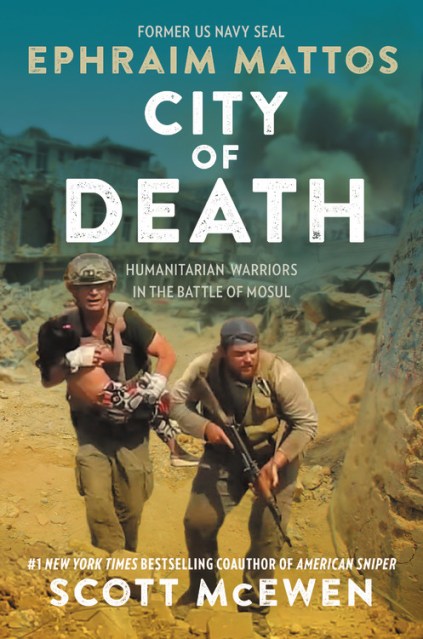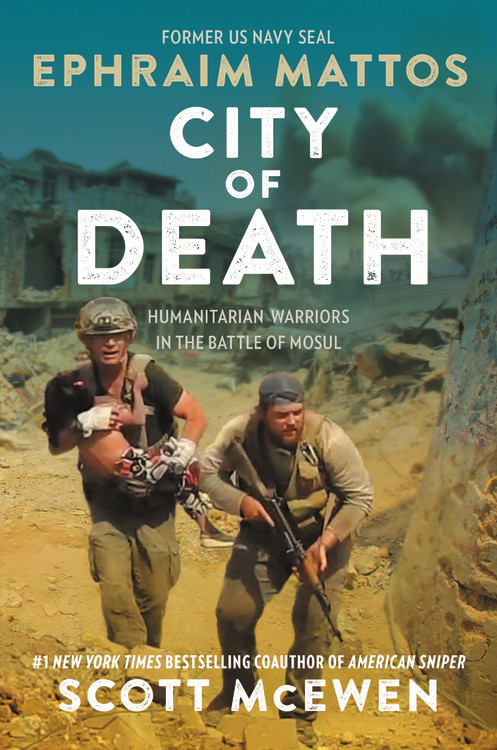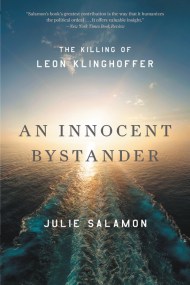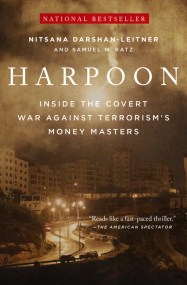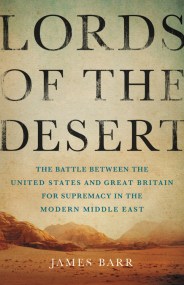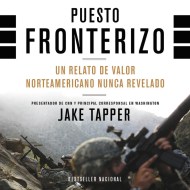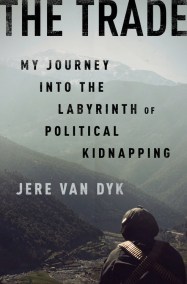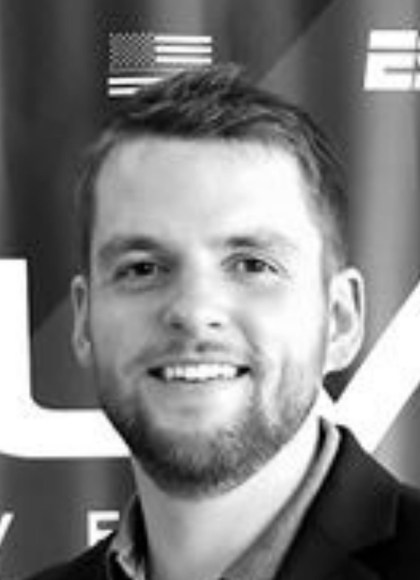Promotion
Use code MOM24 for 20% off site wide + free shipping over $45
City of Death
Humanitarian Warriors in the Battle of Mosul
Contributors
By Scott McEwen
Formats and Prices
Price
$37.00Price
$47.00 CADFormat
Format:
- Hardcover $37.00 $47.00 CAD
- ebook $13.99 $17.99 CAD
- Audiobook Download (Unabridged)
This item is a preorder. Your payment method will be charged immediately, and the product is expected to ship on or around October 23, 2018. This date is subject to change due to shipping delays beyond our control.
Also available from:
After leaving the US Navy SEAL teams in spring of 2017, Ephraim Mattos, age twenty-four, flew to Iraq to join a small group of volunteer humanitarians known as the Free Burma Rangers, who were working on the frontlines of the war on ISIS.
Until being shot by ISIS on a suicidal rescue mission, Mattos witnessed unexplainable acts of courage and sacrifice by the Free Burma Rangers, who, while under heavy machine gun and mortar fire, assaulted across ISIS minefields, used themselves as human shields, and sprinted down ISIS-infested streets-all to retrieve wounded civilians.
In City of Death: Humanitarian Warriors in the Battle of Mosul, Mattos recounts in vivid detail what he saw and felt while he and the other Free Burma Rangers evacuated the wounded, conducted rescue missions, and at times fought shoulder-to-shoulder with the Iraqi Army against ISIS. Filled with raw and emotional descriptions of what it’s like to come face-to-face with death, this is the harrowing and uplifting true story of a small group of men who risked everything to save the lives of the Iraqi people and who followed the credence, “Greater love hath no man than this, that a man lay down his life for his friends.”
As the coauthor of the #1 New York Times bestselling American Sniper, Scott McEwen has teamed up with Mattos to help share an unforgettable tale of an American warrior turned humanitarian forced to fight his way into and out of a Hell on Earth created by ISIS.
Genre:
-
"In combat it's not about the number of lives you take, it's about the number of lives you save. Ephraim did not only fight the toughest terrorists in the world during the Battle of Mosul, but he also saved numerous innocent Iraqi lives. He is the true definition of an American freedom fighter."Hamody Jasim, Sgt. Major Iraqi Army (Ret.) and author of The Terrorist Whisperer
-
"Ephraim Mattos has demonstrated a rare level of public virtue and commitment to humanity. CITY OF DEATH is a sobering reminder of the challenges we face on this earth, but stories like Ephraim's inspire us to press on. Books detailing the lives of Special Forces heroes are not uncommon these days. However, Ephraim's unique story of combat and sacrifice AFTER leaving the military will leave a lasting impression on the reader."Tim Ballard, Founder & CEO of Operation Underground Railroad
-
"Ephraim's story is a taut real-life thriller. His vivid and brilliantly reported account of events on the front-lines gives the reader a real dose of reality. He has a unique way of storytelling that makes this book a page-turner."Rudolph Atallah, Lt Colonel (Ret), Former Africa Counter-terrorism Director, Office of the Secretary of Defense
- On Sale
- Oct 23, 2018
- Page Count
- 304 pages
- Publisher
- Center Street
- ISBN-13
- 9781546081821
Newsletter Signup
By clicking ‘Sign Up,’ I acknowledge that I have read and agree to Hachette Book Group’s Privacy Policy and Terms of Use
